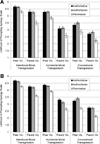When and Why Parents Prompt Their Children to Apologize: The Roles of Transgression Type and Parenting Style
- PMID: 28405175
- PMCID: PMC5386507
- DOI: 10.1080/13229400.2016.1176588
When and Why Parents Prompt Their Children to Apologize: The Roles of Transgression Type and Parenting Style
Abstract
Young children are sensitive to the importance of apologies, yet little is known about when and why parents prompt apologies from children. We examined these issues with parents of 3-10-year-old children (N = 483). Parents judged it to be important for children to apologize following both intentional and accidental morally-relevant transgressions, and they anticipated prompting apologies in both contexts, showing an 'outcome bias' (i.e., a concern for the outcomes of children's transgressions rather than for their underlying intentions). Parents viewed apologies as less important after children's breaches of social convention; parents recognized differences between social domains in their responses to children's transgressions. Irrespective of parenting style, parents were influenced in similar fashion by particular combinations of transgressions and victims, though permissive parents were least likely to anticipate prompting apologies. Parents endorsed different reasons for prompting apologies as a function of transgression type, suggesting that they attend to key features of their children's transgressions when deciding when to prompt apologies.
Keywords: apology; moral development; parenting; social domain theory; socialization.
Figures




Similar articles
-
Take a moment to apologize: How and why mindfulness affects apologies.J Exp Psychol Appl. 2022 Sep;28(3):661-675. doi: 10.1037/xap0000387. Epub 2022 Jan 10. J Exp Psychol Appl. 2022. PMID: 35007099
-
I'm sorry I said that: apologies in young children's discourse.J Child Lang. 2006 Aug;33(3):599-620. doi: 10.1017/s0305000906007446. J Child Lang. 2006. PMID: 17017280
-
Evaluations of moral and conventional intergroup transgressions.Br J Dev Psychol. 2016 Nov;34(4):489-501. doi: 10.1111/bjdp.12145. Epub 2016 Apr 30. Br J Dev Psychol. 2016. PMID: 27130807
-
Influence of parental involvement and parenting styles in children's active lifestyle: a systematic review.PeerJ. 2023 Dec 21;11:e16668. doi: 10.7717/peerj.16668. eCollection 2023. PeerJ. 2023. PMID: 38144179 Free PMC article.
-
Discipline in early childhood.Pediatr Clin North Am. 1991 Dec;38(6):1351-69. doi: 10.1016/s0031-3955(16)38224-4. Pediatr Clin North Am. 1991. PMID: 1945547 Review.
Cited by
-
Chinese Youth's Reported Social and Moral Transgressions and Strategies for Self-Correction.J Adolesc Res. 2022 Nov;37(6):747-775. doi: 10.1177/0743558420979124. Epub 2020 Dec 11. J Adolesc Res. 2022. PMID: 36204725 Free PMC article.
-
The Relationship Between Pediatric Residents' Experiences Being Parented and Their Provision of Parenting Advice.Front Pediatr. 2018 Dec 12;6:395. doi: 10.3389/fped.2018.00395. eCollection 2018. Front Pediatr. 2018. PMID: 30619790 Free PMC article.
References
-
- Abuhatoum S, Howe N. Power in sibling conflict during early and middle childhood. Social Development. 2013;22(4):738–754.
-
- Alink LRA, Mesman J, van Zeijl J, Stolk MN, Juffer F, Koot HM, Bakermans-Kranenburg MJ, van IJzendoorn MH. The Early Childhood Aggression Curve: Development of Physical Aggression in 10- to 50-Month-Old Children. Child Development. 2006;77(4):954–966. - PubMed
-
- Anderson JC, Linden W, Habra ME. Influence of Apologies and Trait Hostility on Recovery from Anger. Journal of Behavioral Medicine. 2006;29(4):347–358. - PubMed
-
- Baumrind D. Current patterns of parental authority. Developmental Psychology. 1971;4(1, Pt.2):1–103.
-
- Baumrind D. The development of instrumental competence through socialization. In: Pick AD, editor. Minnesota Symposia on Child Psychology. Vol. 7. Minneapolis: University of Minnesota Press; 1973. pp. 3–46.
Grants and funding
LinkOut - more resources
Full Text Sources
Other Literature Sources
